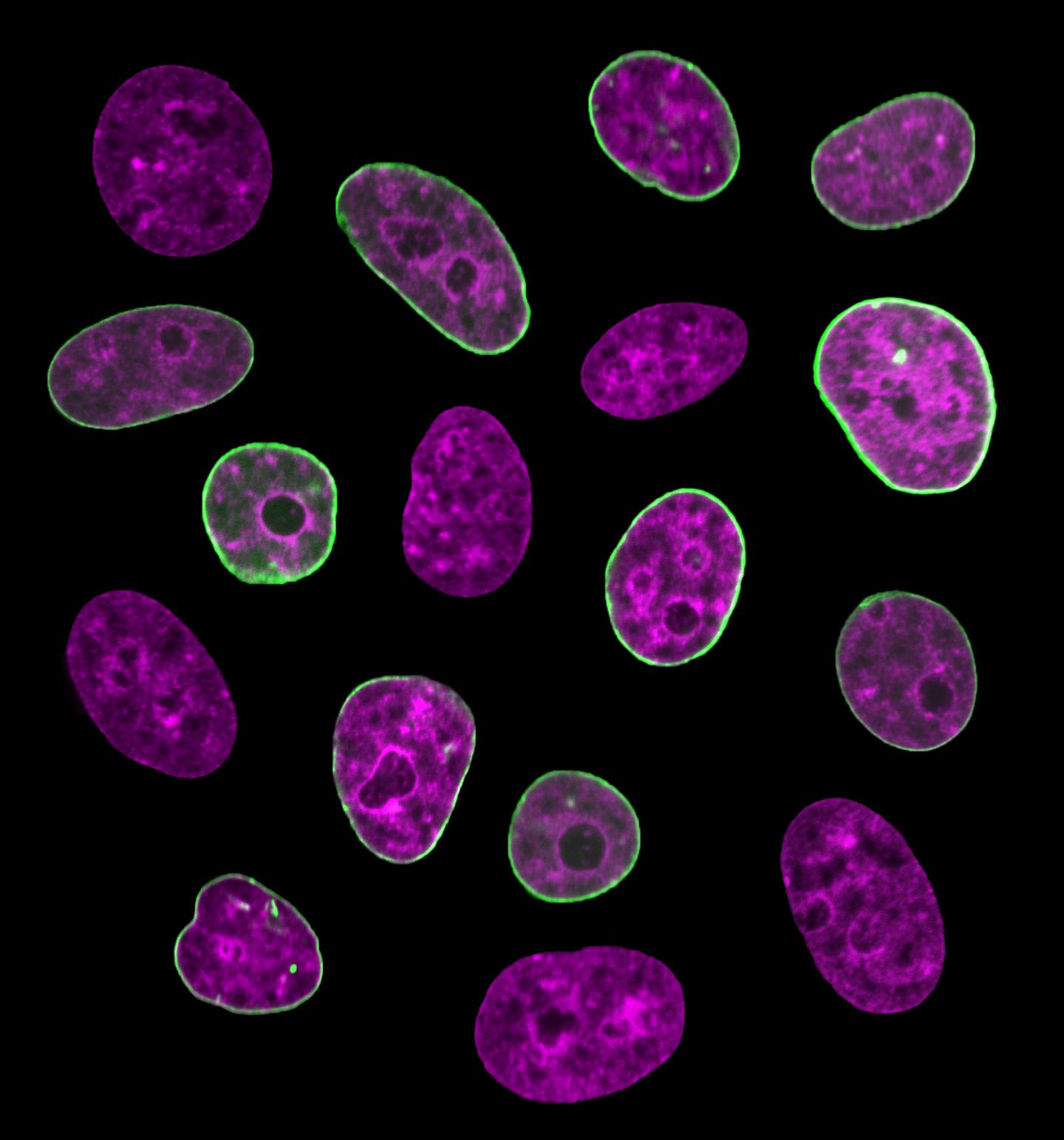A new study published in the journal Proceedings of the National Academy of Sciences (PNAS) confirms the discovery of the internal clock within live human cells. This is a fantastic breakthrough and may help to unfold more clues as to how disease comes about and to gain a better understanding about the building blocks of life.

Alexandra Zidovska is an assistant professor of physics at New York University and the senior author on the study. “Previously, a precise point of a cell in its life cycle could only be determined by studying dead cells,” she explains. However, with this discovery, which shows that the nucleus exhibits rapid fluctuations that decrease during the life cycle of the cell, we can enhance our knowledge of both healthy and diseased human cells.”
Others that took part in the study included Fang-Yi Chu, an NYU doctoral candidate, and Shannon Haley, and NYU undergraduate. Together the scientists used a special microscope to enable them to see the very small and very rapid changes that take place in the cell nucleus of living cells. In doing this they discovered that the nucleus behaves in a way that previously went undetected. The nucleus flickers over a few seconds of time. They also noted that these changes decrease over time as the cell goes through its cycle.
“Therefore, this process can serve as an internal clock of the cell, telling you at what stage in the cell cycle the cell is,” confirmed Zidovska. “We know that structural and functional errors of the nuclear envelope lead to a large number of developmental and inherited disorders, such as cardiomyopathy, muscular dystrophy, and cancer. Illuminating the mechanics of nuclear shape fluctuations might contribute to efforts to understand the nuclear envelope in health and disease.”
More News to Read
- Researcher Discovered a New Way of Eco-Friendly Disposal for Data Security and Healthcare
- NASA’s Ocean Observation Reveals Sea-Level Fingerprints
- Chinese Scientists Create Device That Converts Blood Flow Energy into Electricity
- Researchers Revealed a New Clinically Tested Drugs that Inhibits the Growth of Tumours
- What Do You Think About Clothes that Grow With Your Child?

